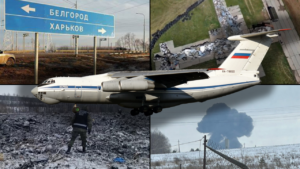Why Interpol Refuses to Issue Warrants for Russian Suspects of War Crimes — Investigation
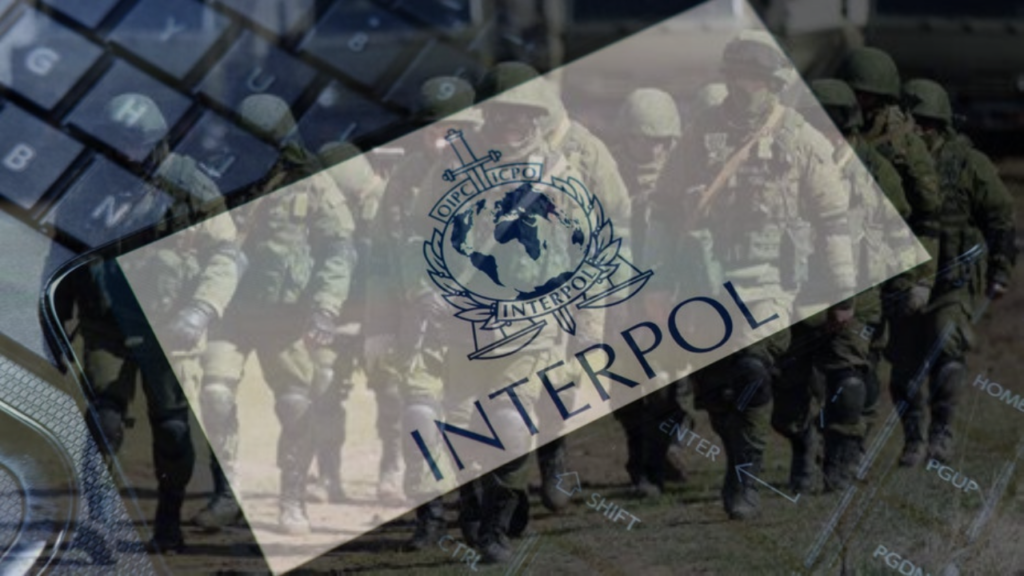
On March 19, 2022, at 2:10 PM, a white minibus with the letter “V” and the inscription “Tank Special Forces RUS” on the body arrived at a company near the village of Mriya in the Bucha district of Kyiv region. The passengers were five Russian soldiers. Unarmed civilians—a 61-year-old business owner and a 68-year-old security guard— approached the occupiers. The Russians talked to them and allegedly released them. However, as the two Ukrainians took a few steps back, two of the Russian soldiers shot them in the back with automatic rifles. Later, at least 12 gunshot wounds were found on the victims’ bodies.
This is one of the countless war crimes committed by the Russian army on Ukrainian territory during the first month of the full-scale war. The world might never have learned the details of the murder if it weren’t for the surveillance cameras that recorded the crime.
In the spring of that same year, a Russian prisoner of war, contract soldier Erdeni Ukhinov, identified one of the soldiers who opened fire in the video. It was Mykola Sokovikov, the Russian Armed Forces tank brigade lieutenant. He is charged with violating the laws and customs of war (Article 438 of the Criminal Code). However, the trial of Sokovikov, like most Russian military personnel, was held in absentia—without the accused. Although such legal procedure complies with international law, it was impossible to issue a search warrant for Sokovikov through the International Criminal Police Organization, better known as Interpol.
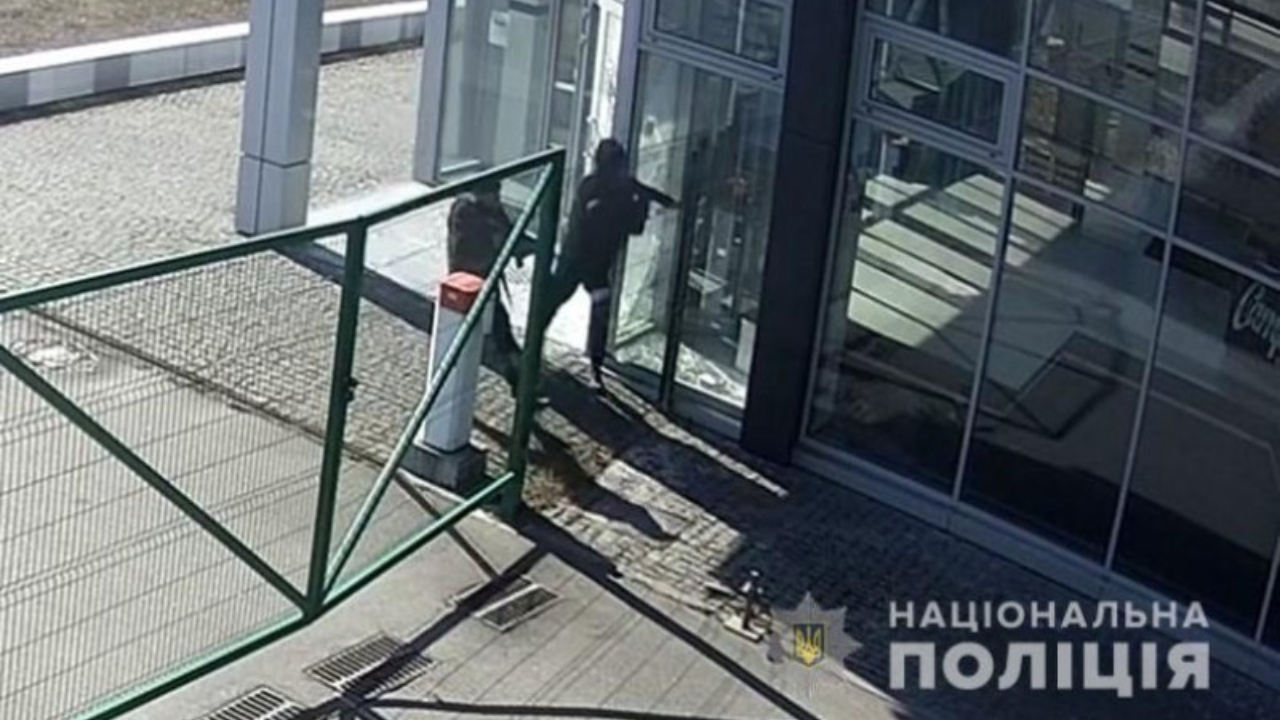
The case of the execution of civilians. Screenshot from surveillance camera footage. Photo: National Police
The MIHR conducted an investigation and determined why Interpol’s tools are unavailable to Ukraine when it comes to Russia’s war crimes.
Article 3 of the Constitution
The procedure for issuing a search warrant is straightforward. If a person suspected of committing a crime on the territory of any internationally recognized country—currently 196 such countries are members of Interpol—fails to respond to law enforcement summons, they are first declared wanted within the state. Then, the data is transferred to the international organization.
Interpol officers do not directly perform police functions, meaning they do not have the authority to arrest suspects or use service weapons. Andrii Yakovliev, a lawyer and expert at MIHR in International Humanitarian Law, explains Interpol is an infrastructure, not a law enforcement agency.
However, when it comes to the international fight against crime, this organization coordinates the work of law enforcement agencies in individual countries. Its database of wanted persons is accessible to law enforcement officers from all Interpol member countries.
This could significantly simplify Ukraine’s international search for those suspected of committing crimes against humanity and violations of the laws and customs of war. However, the obstacle is Article 3 of Interpol’s Constitution, which prohibits the organization from intervening in the investigation of military cases. In other words, Interpol cannot issue international warrants for foreign citizens accused of war crimes.
— This Interpol policy was established decades ago [the Organization’s Constitution was adopted in 1956]. This article was introduced for obvious reasons, as it was shaped by the experience of investigations dating back to World War II, — Iryna Didenko, Deputy Head of the Department of International Legal Cooperation at the Office of the Prosecutor General of Ukraine, explains.
Nuances: Terminological and Factual
At the same time, Interpol’s refusal to search for suspects of war crimes committed on the territory of Ukraine still raises questions. First and foremost, this is related to terminology.
Article 3 in the Ukrainian version of the Constitution reads, ‘It is strictly forbidden for the Organization to undertake any intervention or activities of a political, military, religious or racial character.’
Accordingly, it is specifically about military crimes, not war crimes, meaning those related to the conduct or performance of military service. This includes, for example, failure to obey a command, desertion, unauthorized departure from a military unit, etc.
This could be attributed to a translation error. However, the original English version of the article is written as follows, ‘It is strictly forbidden for the Organization to undertake any intervention or activities of a political, military, religious or racial character.’
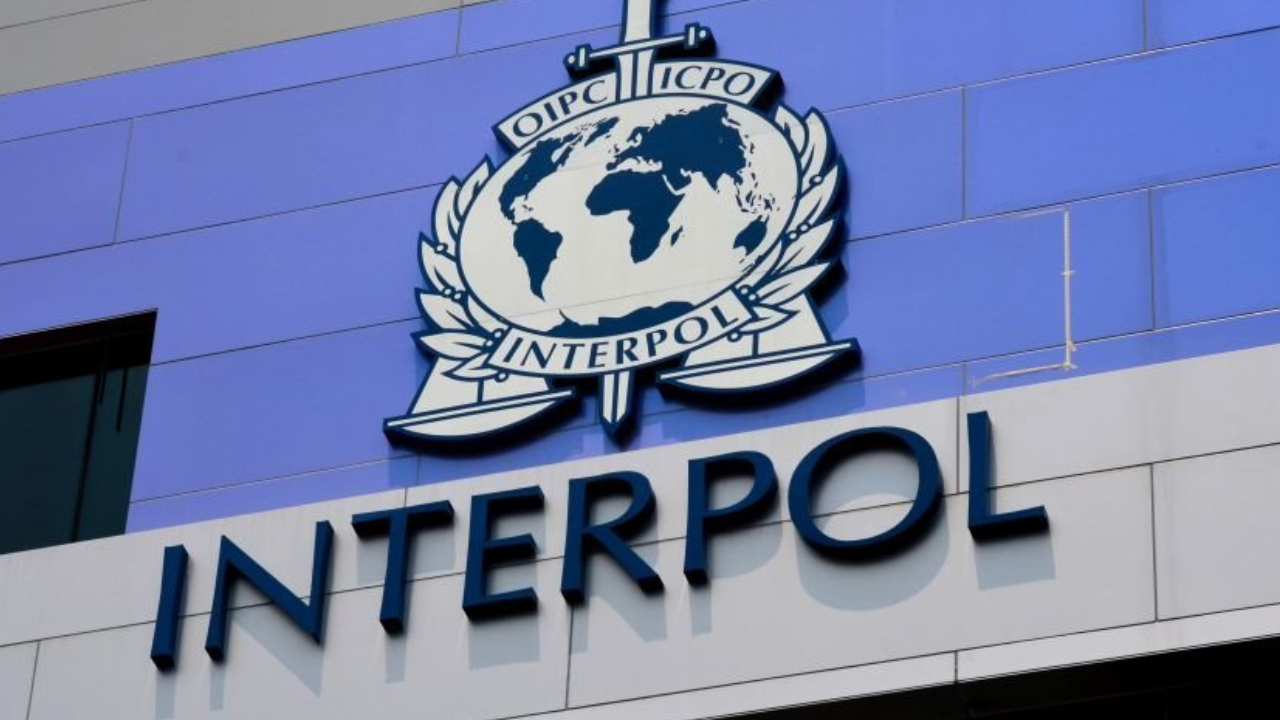
Meanwhile, the Office of the Prosecutor General notes that Interpol does not distinguish between ‘military’ and ‘war’ crimes, so Article 3 covers all cases related to the Russian-Ukrainian war without exception.
It should be noted that the issue of applying this article arose not with the onset of the full-scale invasion but earlier. For example, in February 2021, the head of the Prosecutor’s Office of the Autonomous Republic of Crimea and the city of Sevastopol, Ihor Ponochovnyi, reported that Interpol refused to search for those involved in crimes on the territory of occupied Crimea.
— That is, Interpol has imposed an absolute boycott on any initiatives regarding the international search for criminals who committed crimes in Crimea. Unofficially, of course, — Ponochovnyi declared at the time.
The Prosecutor General’s Office informed the MIHR that they had repeatedly approached Interpol for consultations regarding the search and detention of certain Russian citizens suspected by Ukraine of committing war crimes. However, they have never received a positive response. The Prosecutor’s Office does not disclose the exact content of these requests.
Nevertheless, there have been cases when Ukrainian law enforcement managed to take advantage of the differences in terminology. However, this concerned not Interpol but legal assistance within the framework of other international treaties.
Our partners are playing ball with us in this issue. For example, regarding a critical issue of the export of Ukrainian grain stolen by Russia, — Didenko clarifies.
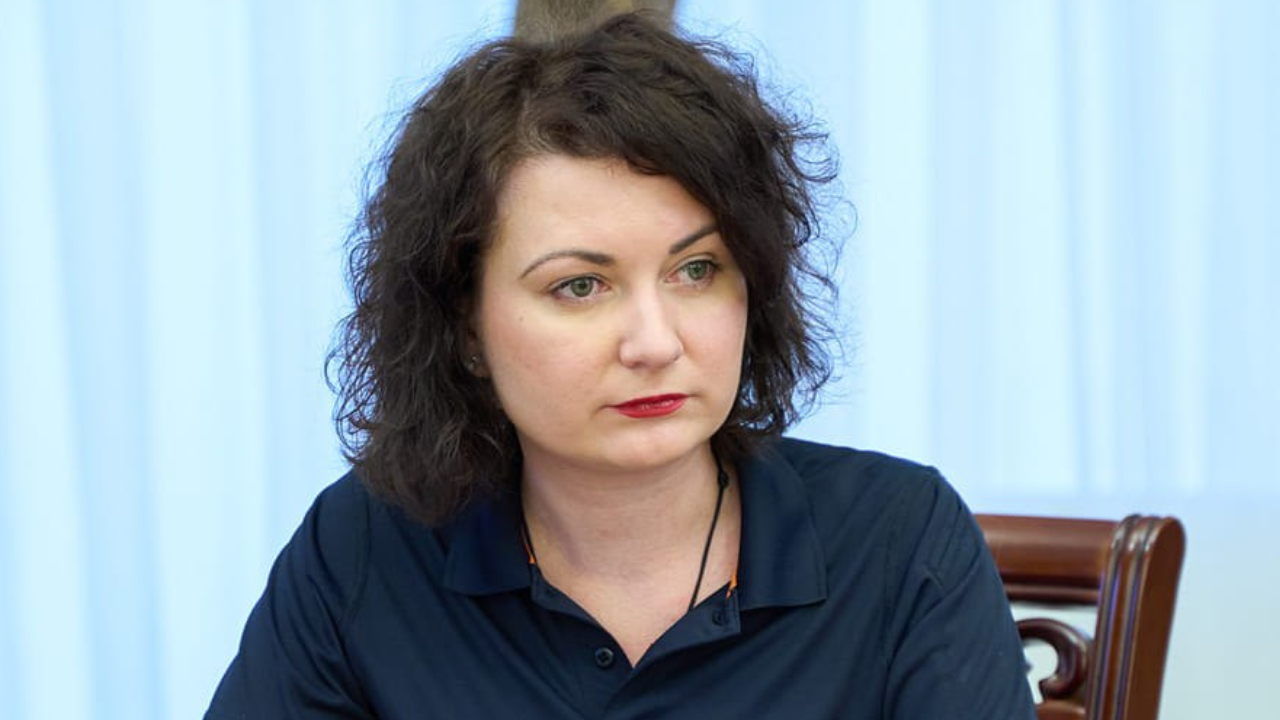
Iryna Didenko, Deputy Head of the Department of International Legal Cooperation of the Prosecutor General’s Office of Ukraine. Photo: PGO
Instead, according to the Prosecutor’s office, Interpol continues to strictly adhere to the policy defined by its Constitution. However, this has not always been the case: In recent decades, Interpol has already made compromises regarding the international search for war criminals.
Resolution
The Russian-Ukrainian war is not the first historical moment when Interpol has faced challenges related to war crimes.
The Yugoslav wars in 1991-2001, the civil war in Sierra Leone in 1991-2002, and the 1994 Rwandan genocide forced the organization to rethink its policy, as outlined in Article 3 of its Constitution.
—After the Yugoslav War, countries worldwide began demanding Interpol to use its tools. As a result, the General Assembly of Interpol made a firm decision to open up this possibility and to consider requests from countries regarding Interpol’s tools in cases involving war crimes, crimes against humanity, and genocide, in particular. — Police Colonel Vitalii Kasap, Head of the Department of International Police Cooperation of the National Police of Ukraine, explains to MIHR.
This resulted in Resolution AG-2010-RES-10, adopted by the Interpol General Assembly in November 2010 in Qatar.
It allows for the issuance of a warrant for suspects of war crimes, crimes against humanity, and genocide. However, it applies only to the following three situations:
- When requests are made by international tribunals.
- When requests are made by entities established by the UN Security Council, taking into account specific arrangements concerning such requests.
- When requests are submitted by Interpol member states—unless the request concerns a citizen of another member state and that other state protests the request within 30 days.
For instance, if Ukraine submits a request to Interpol regarding a Russian citizen suspected of committing such crimes, Interpol can issue a wanted warrant unless Russia objects to the request.
The Qatar resolution was Interpol’s response to numerous requests regarding genocide, crimes against humanity, and war crimes, which ‘raise doubts about their compliance with Article 3 of the Constitution.’ As stated in the document, Interpol was concerned about ‘the spread of disputes among member countries regarding handling such requests.’
The adopted document indeed became a solution amid the investigation of crimes committed in the territories of the former Yugoslavia, Rwanda, and Sierra Leone.
— Many people think that the presence of Article 3 of the Constitution prevents us from using Interpol’s tools against war criminals. But this is not the case. Indeed, 50 years ago, Interpol did not use its tools against war criminals. It was considered taboo — just like terrorism. However, the situation is different today. — Kasap notes.
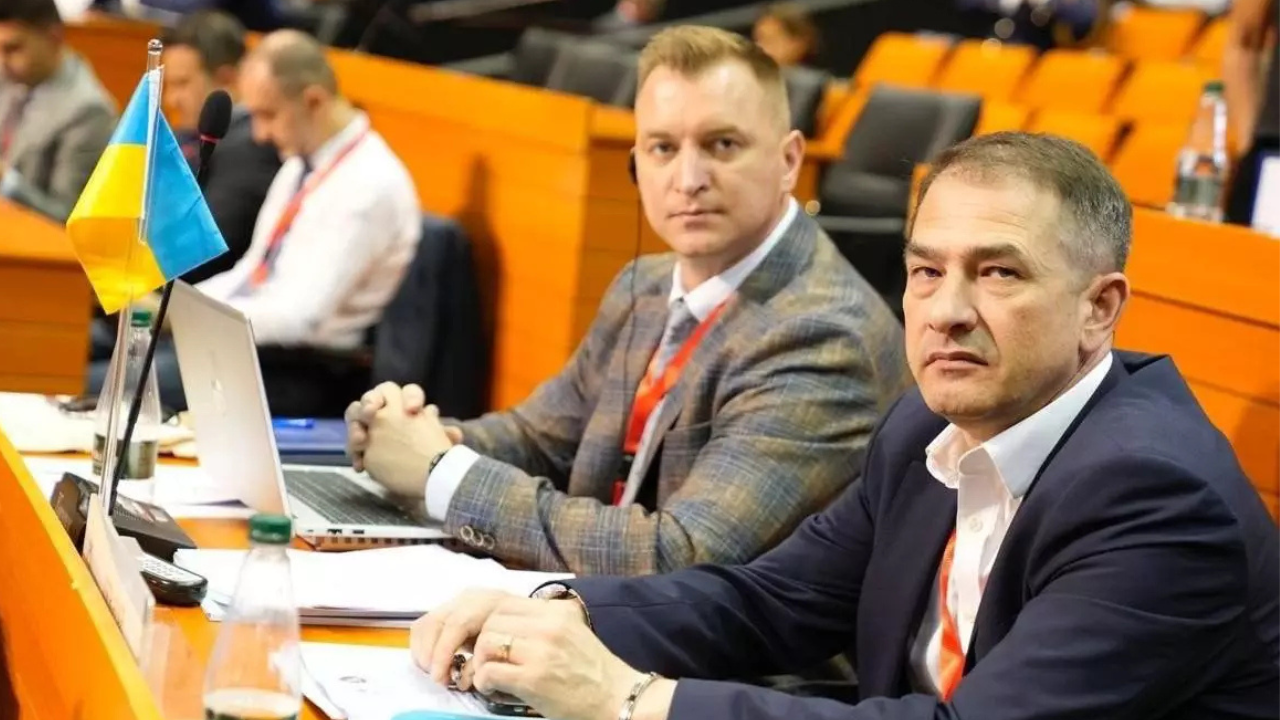
Vitalii Kasap (on the right), Head of the Department of International Police Cooperation of the National Police, at the 51st European Regional Conference of Interpol. Photo: National Police of Ukraine
The Department of International Police Cooperation implements the powers of the National Police of Ukraine to represent and ensure the fulfillment of Ukraine’s obligations in Interpol and as the National Central Bureau of Interpol (NCBI).
— As the NCBI, we ensure the use of Interpol’s information system in response to requests from Ukrainian law enforcement agencies that come to us. The NCBI is the authority that can submit requests to Interpol’s General Secretariat. In other words, we effectively provide communication and daily coordination. — Kasap emphasizes.
Since 2014, the NCBI has been addressing the Interpol General Secretariat with requests to search for suspects involved in crimes committed in the occupied Donetsk and Luhansk regions and Crimea. However, these requests were denied. After the outbreak of full-scale war, the NCBI accumulated the most high-profile cases involving Russian citizens and submitted this package to the General Secretariat for consideration.
The consultations lasted for over a year and a half.
— We put a lot of pressure on them: we sent dozens of reminders and held numerous meetings regarding this issue. But we were constantly told that the issue was being considered. — The head of the NCBI explains.
Eventually, Kyiv received a response — a negative one. Neither NCBI nor the Prosecutor General’s Office quotes the letter from the General Secretariat. Nevertheless, the NCBI initiated an additional review of the matter within Interpol and continues to work on it, holding the necessary consultations and meetings with Interpol’s leadership.
Ukrainian experts believed the issue would move forward with the election of a new Secretary-General. For the past ten years, the position was held by German law enforcement official Jürgen Stock. However, in the voting on November 5, 2024, the position was won by 43-year-old Brazilian Valdecy Urquiza. He defeated his primary opponent, Stephen Kavanagh from the United Kingdom, who had been favored by London. The policy of the new Secretary-General will determine whether the organization will unblock for Ukraine the search for war criminals. It should be noted that Lithuania’s Minister of the Interior, Agnė Bilotaitė, has already urged Urquiza to demonstrate resilience during Russia’s aggressive war against Ukraine.
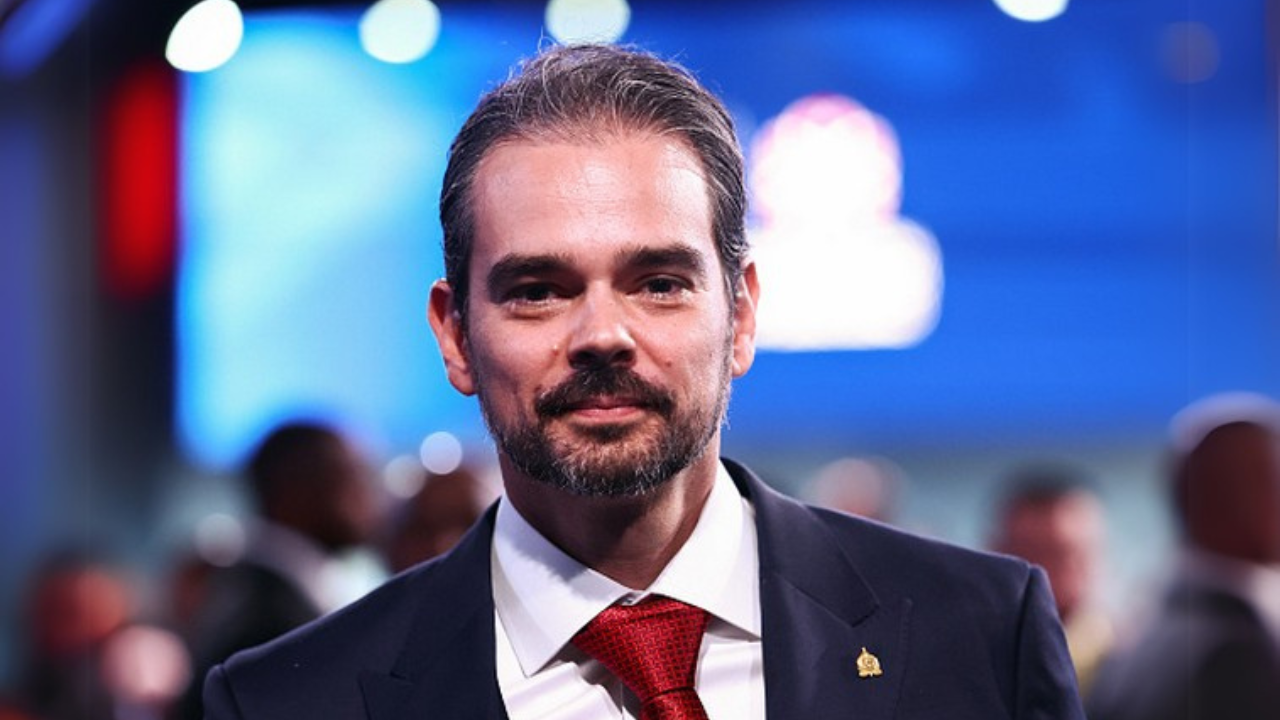
Valdecy Urquiza, Secretary-General of Interpol. Photo: Getty Images
Alternative to Interpol
Experts agree that Interpol is the most effective international mechanism for tracking suspects. However, it is not the only one.
Europol—the European Police Office, established in the fall of 1998, coordinates and supports the law enforcement agencies of the European Union states in combating organized crime, terrorism, cybercrime, etc. Like Interpol, еру European organization does not have its own operational officers performing police functions. Instead, it provides informational, technical, and analytical support to national law enforcement agencies within the EU countries.
The International Police Cooperation Department of the National Police of Ukraine also serves as the National Contact Point for Europol. Although Ukraine is not a member of the European Union, it can still utilize Europol’s tools. However, these tools differ from Interpol’s ones, meaning Europol does not perform similar functions. Currently, Ukrainian law enforcement relies on the only available option for the international search of suspects in war crimes—bilateral cooperation agreements.
—The easiest option for Ukraine is to cooperate within the framework of such agreements. However, in this case, we need to communicate with each country individually, — lawyer Andrii Yakovliev comments.
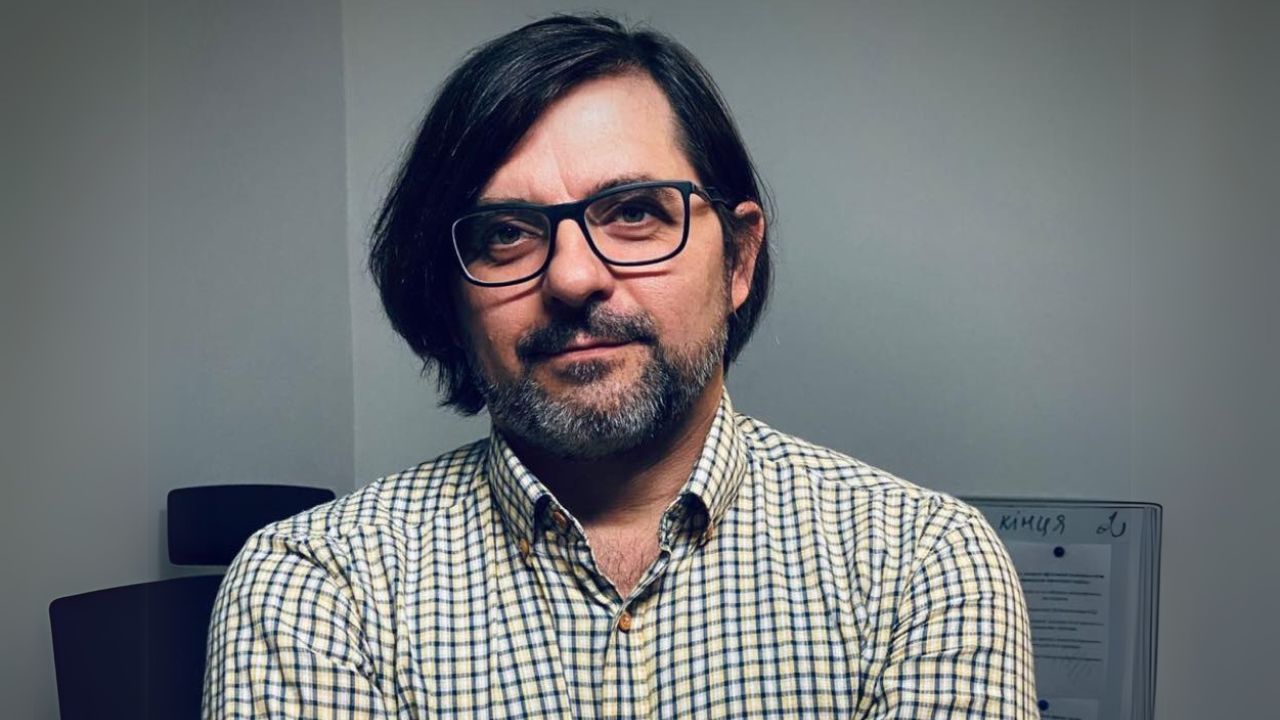
Andrii Yakovliev, an expert on International Humanitarian Law at MHRH
The Office of the Prosecutor General also confirms that bilateral agreements are theoretically effective tools.
Interstate cooperation works as follows: Ukrainian law enforcement officers learn about the suspect’s alleged presence in a particular country and submit a request for their detention.
However, things are not so straightforward in practice. Firstly, there is a low probability that the direct perpetrators of war crimes—Russian soldiers who personally killed, tortured, and raped Ukrainians in the occupied territories—will end up in a partner country of Ukraine.
Secondly, Ukraine must find a way to obtain information about the whereabouts of these individuals in foreign countries.
—The problem is that we must have sufficient grounds to submit a request. In other words, we must be confident that the person is in a third-country territory. And this is not as easy because it requires operational sources, — Iryna Didenko explains.
The Office of the Prosecutor General has submitted similar requests to other countries. However, there have been no precedents for detaining suspects so far. The reason, as Didenko explains, is that the exact whereabouts of the suspect have not been determined.
— One mechanism for searching and detaining suspects, accused, and convicted foreign nationals for war crimes is universal jurisdiction. Another country, depending on its legislation, may initiate an investigation into such a crime within its own territory. Potentially, the law enforcement agencies of that country could later request assistance from Interpol. Several countries currently have their own investigations, and we are assisting them while awaiting results, — Didenko adds.
Since the existing mechanisms for the international search of suspects do not meet Ukraine’s needs, the Office of the Prosecutor General intends to develop its infrastructure for these tasks. Various options for a system that would serve as an alternative to Interpol are currently being developed.
A significant step in this direction was the signing of the Ljubljana-The Hague Convention in February this year on behalf of Ukraine by Iryna Mudra, the then Deputy Minister of Justice of Ukraine.
—This Convention is aimed at promoting and strengthening interstate cooperation, based on the universal obligation of states to investigate and hold accountable those liable for serious violations of international law, — Iryna Didenko emphasizes.
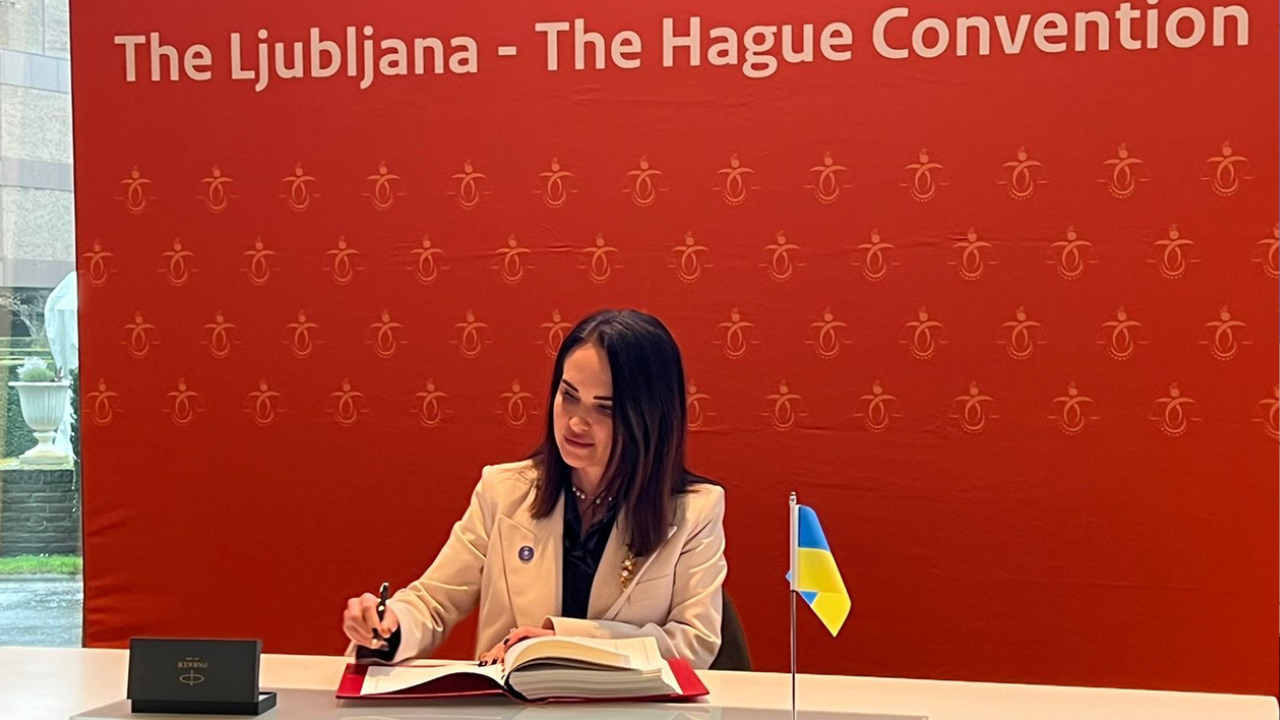
Iryna Mudra, Deputy Minister of Justice of Ukraine, signs the Ljubljana-The Hague Convention. This is the first document in international criminal law since the Rome Statute. Photo: Ministry of Justice
Insidious Measures of the Russian Federation
The fact that Interpol refuses to use its tools for searching suspects involved in war crimes on Ukrainian territory may also have a positive impact. Lawyer Andrii Yakovliev is convinced and emphasizes that this refusal means that Russia, also a member of this organization, cannot use Interpol’s mechanisms in the context of the war either.
Meanwhile, the Office of the Prosecutor General notes that Russia is attempting to circumvent international restrictions by issuing search warrants for Ukrainians for allegedly committing general criminal crimes rather than war crimes. Alternatively, it tries to involve states loyal to Moscow in the search for Ukrainian citizens.
Usually, these cases involve individuals who possess sensitive information in Ukraine’s defense. They may be targeted for search based on fabricated accusations of murder, fraud, or theft.
The problem is that Interpol does not verify the legitimacy of the charges.
—In simple terms, Interpol cannot approach the country that has issued the search request and ask for case materials to check, hypothetically, for the presence of evidence. A member country of the organization, by default, guarantees that it has the confirmation of the guilt of the person being pursued, — Iryna Didenko comments.
In recent years, Interpol has focused on minimizing the misuse of its mechanisms through deceptive means. The organization pays special attention to this issue. Although there are still instances where Interpol issues red notices in such cases, Didenko assures that they have not become widespread.
The NCBI, for its part, notes that it constantly monitors Russia’s attempts to improperly use Interpol’s information system regarding Ukrainian citizens and promptly reports such violations to the organization’s General Secretariat.
—We constantly monitor this issue, but we have not found evidence that Russia is unlawfully using Interpol’s tools to search for, locate, or arrest Ukrainian citizens. This is not because Russia isn’t attempting to do this but because restrictions have been imposed on Russia since the beginning of the full-scale war. All Russian requests for wanted notices currently submitted to the General Secretariat are screened by a unit created specifically for this purpose. This screening is carried out even in cases involving general criminal matters.
Yevheniia Korolova, journalist MIHR.



